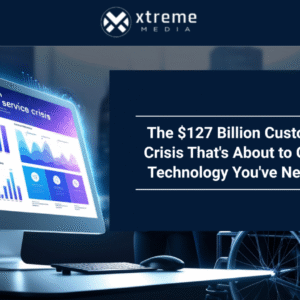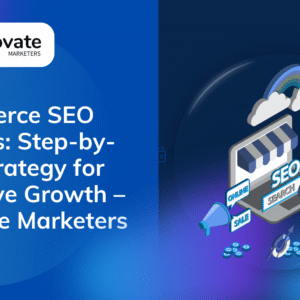When creating a strong online presence, companies tend to grapple with deciding on the appropriate marketing strategy. Should you focus on B2B marketing, targeting other companies, or should you utilize B2C marketing, targeting the end consumer?
The response varies based on your target market, audience, and sector. In this blog post, we will break down the key distinctions between B2B and B2C marketing and assist you in deciding the best approach for your business.
What is B2B Marketing?
B2B (Business-to-Business) marketing involves promoting products or services to other companies rather than individual consumers.
For example, a Web Development Company in Chennai providing corporate websites, or a software firm offering enterprise solutions, falls under the B2B model.
Key aspects of B2B marketing:
-
Longer decision-making cycles.
-
Multiple stakeholders involved in approvals.
-
Emphasis on value, ROI, and expertise.
-
Focus on long-term relationships.
What is B2C Marketing?
B2C (Business-to-Consumer) marketing focuses on reaching individual customers. Think e-commerce stores, fashion brands, restaurants, or mobile apps.
Key aspects of B2C marketing:
-
Quick, emotionally driven decisions.
-
Relies heavily on brand awareness and promotions.
-
Short sales cycle.
-
Focus on creating memorable customer experiences.
For example, if you run an online store, your campaigns might focus on influencer tie-ups, Instagram ads, and discounts to drive instant conversions.
Key B2B and B2C Marketing Plan Differences
-
Target Market
B2B: Markets businesses, decision-makers, and professionals. Target market is minuscule but highly specific.
B2C: Markets a large consumer base with diverse tastes.
-
Buying Process
B2B: More complex process that includes multiple decision-makers. Trust, case studies, and experience are massive influencers.
B2C: Emotionally driven faster buying decisions based on trends or promotions.
-
Content Strategy
B2B: Depends upon informative and value-based materials like whitepapers, case studies, and webinars.
B2C: Dependent upon engaging, interesting, and persuasive content like social media, videos, and reviews.
-
Marketing Channels
B2B: Utilizes LinkedIn, email marketing, SEO, and industry events.
B2C: Utilizes Instagram, Facebook, YouTube, and influencer marketing.
Creating the Right B2B Marketing Plan
For businesses that are selling to businesses, it must be relationship-oriented and long-term value. A good plan consists of:
Content Marketing: Carry out research reports, case studies, and blogs to establish expertise.
Search Engine Optimization (SEO): SEO of high-priority industry-specific keywords so your customers can find you.
Email Marketing: Targeted campaigns for lead nurturing.
Professional Website: A professional, easy-to-use website is paramount. Through a Web Development Company Chennai collaboration, your website will convey credibility and trust.
Fewer one-off conversions and more long-term relationships are characteristic of B2B marketing.
Getting the Right B2C Marketing Strategy
For consumer-to-business businesses, quick engagement and conversions are ideal. A good approach involves:
Social Media Marketing: Leverage reels, stories, and influencer collaborations for the greatest reach.
Pay-Per-Click (PPC) Ads: Target shoppers by interest, demographics, and purchasing behavior.
Email Offers: Offer discount coupons, holiday promotions, and product news.
Content That Resonates: Emphasize brief, compelling content such as video and blog content that addresses consumer queries.
Here, speed is the emphasis and building memorable brand experiences is the priority.
Where Does Digital Marketing Fit In?
Be it B2B or B2C, one thing is certain: digital marketing is the linchpin of every strategy.
If you are a Chennai business, having the service of experts who know the market here can provide you with a huge boost. That’s where SME Digital comes into play. They are a Digital Marketing Services in Chennai providing bespoke solutions for B2B as well as B2C businesses. Starting from SEO and PPC to social media and web development, they facilitate businesses to expand using data-driven approaches.
B2B or B2C: Which One Do You Use?
Following is a brief overview to assist you in making a choice:
Select B2B Marketing if:
- You are selling goods or services to companies.
- Your customers require extensive information in taking a decision.
- You intend to establish long-term relationships.
Select B2C Marketing if:
- You are selling directly to consumers.
- Your buying cycle is short, and decision-making happens quickly.
- You use branding, emotions, and promotions as a source of sales.
In some cases, businesses use a hybrid approach. For example, a software company might market to other businesses (B2B) while also offering direct subscriptions to individuals (B2C).
Why Work With Experts?
Whether you’re focusing on B2B or B2C, executing a successful marketing plan requires expertise in branding, SEO, content, and design. A professional team ensures that every campaign is optimized for visibility and conversions.
SME Digital combines Digital Marketing Services in Chennai with technical expertise in a Web Development Company in Chennai. You receive the whole package—gorgeous websites, solid SEO, and focused marketing campaigns for your business niche.
Read More: Blog
Final Thoughts
There is no one silver bullet in the B2B vs. B2C marketing battle. Your business model, goals, and target audience all decide what will work best. B2B involves trust-building and relationships, whereas B2C involves emotions and speed of conversion.
In order to formulate a winning strategy, having the expert hand of SME Digital at your command will guide you through the virtual world. Whether you require sophisticated Digital Marketing Services in Chennai or the expertise of a Web Development Company in Chennai, SME Digital makes your marketing efforts worthwhile.






